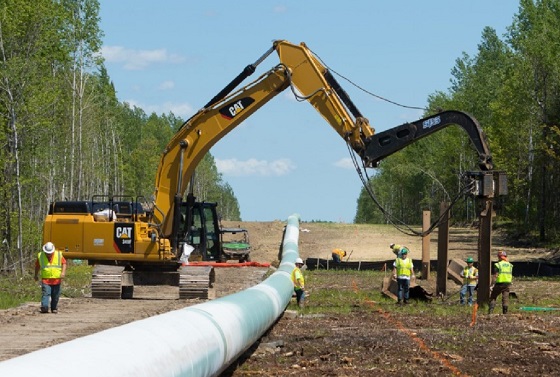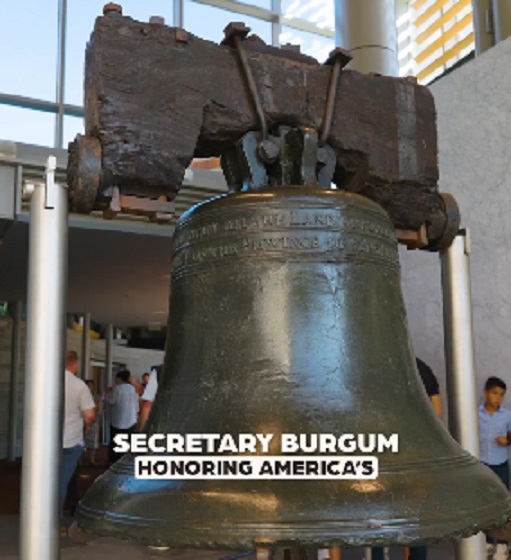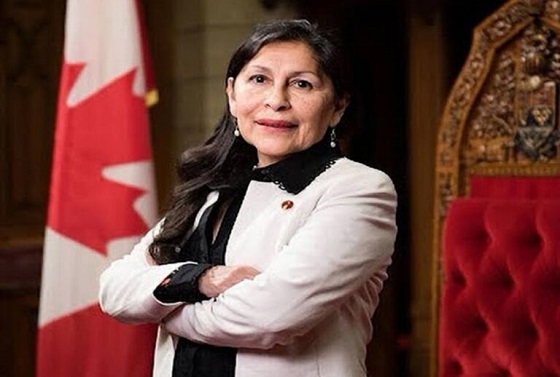Opinion
UCP Tax Cut Hits the Target but Misses the Mark

Opinion by Cory G. Litzenberger
Well for fear of being lynched, let me talk about how I think the UCP’s Job Creation Tax Cut may be (partially) incorrect.
While I applaud politicians for laying out their plans in advance of an election, my fear is that the plan is too slow in implementation and cuts too far.
I think a tax cut needs to be moderate and quick – not slow and deep.
Here are my thoughts for various tax changes we need to do in Alberta:
General Corporate Income Tax Rate:
Instead of cutting by 1% per year over 4 years, bring it back by 2% to 10% from 12% in the first year and keep it there.
By delaying the cut as the UCP currently proposes, it could reduce the impact it will have on the economy as the change to the bottom line will not be impacted enough for a corporation to make larger investment until year two or three of the plan.
Quicker action by government will result in quicker action by business, resulting in quicker action in the economy and job creation.
10% also still makes us the lowest jurisdiction in Canada.
Personal Income Tax change to 3 brackets:
– 8% for first $50k
– 10% for the next $100k
– 12% for over $150k
This reduction from 10% on the first $50,000 saves roughly $600 in personal income tax (after factoring in the basic personal tax credit) for every individual making more than $50,000 a year.
It also saves 2% for those making under $50,000 currently.
This is an important cut in order to reward people that call Alberta home, as you will see below.
A rich person paying 12% in Alberta on their personal income is better than them paying 0% because they live somewhere else.
Harmonized Sales Tax (HST) 5%
Yes, I think we need to remove the inflationary and regressive carbon tax as it is way too high of a burden and causes a ripple effect in inflationary pricing how it was implemented.
However, I suggest we implement a 5% HST (which is a flow-through for businesses and does not have the same impact on pricing).
Now, hear me out before you break out the yellow vest!
Currently, anyone visiting our province as either a tourist or a temporary worker from another province are using our infrastructure like roads, water, and yes, even hospital emergency rooms.
When these non-Alberta residents file their personal tax returns, they file it based on their home province of residence as of December 31. Since most of them don’t have a permanent residence in Alberta, this results is them paying income taxes to other provinces, while using our infrastructure for free.
Other provincial residents not paying any taxes in Alberta while here unfairly puts the cost on all of us that live here.
If we implemented an HST similar to the GST program, low income households would still receive credit back (just like GST credit) to offset most (if not all) of any HST they pay.
The $600 in income tax savings we mentioned above for everyone else, is equivalent to $12,000 of taxable supplies consumed ($24,000 in a double income household where they each make over $50,000 of income).
Don’t forget that basic grocery and shelter do not have sales taxes, and if Andrew Scheer gets elected, neither will basic home heating.(https://twitter.com/andrewscheer/status/854364648388182016)
This income tax reduction of $600 to $1,200 would offset much of the sales tax you would pay, but would now start to charge non-Alberta resident visitors and workers.
The reason for an HST instead of a PST is that currently, an HST is required to be charged by all GST registrants across Canada. If you are a GST registrant, you are automatically an HST registrant.
For example, in my office in Red Deer, I have to charge my Ontario customers HST and send it in to the government even though my business is in Alberta.
An HST could reduce the potential for tax leakage out of our province by funneling it back to Alberta because of other retailers in other provinces requiring to charge it on things purchased outside of, or shipped to, Alberta.
Results
– a competitive corporate tax rate to attract investment and do it quicker than the original UCP plan;
– low personal income tax to attract wealthy individuals (and their tax residency) back to Alberta to make it their place of residence, again, quickly;
– removal of the inflationary carbon tax;
– insertion of a relatively low cost HST so that we can get back some of that transfer payment money from the residents of other provinces.
In Summary
– Reduce Corporate moderately and quickly.
– Reduce Individual moderately and quickly.
– Remove Carbon tax.
– Implement an HST.
I know that the slight mention of a sales tax in Alberta makes the hair on the back of your neck stand straight up, and for many conservative politicians, they would resign before suggesting it. However, even as a fiscal-conservative tax accountant like myself, I believe that if it is implemented properly with tax reductions elsewhere, it can add to the bottom line for the province.
I also think it can do so without being a burden to those that live here by taxing those that don’t.
———
Cory G. Litzenberger, CPA, CMA, CFP, C.Mgr is the President & Founder of CGL Strategic Business & Tax Advisors; you can find out more about Cory’s biography at http://www.CGLtax.ca/Litzenberger-Cory.html
Energy
Mistakes and misinformation by experts cloud discussions on energy

From the Fraser Institute
By Jason Clemens and Elmira Aliakbari
The new agreement (MOU) between the Carney and Alberta governments sets the foundation for a pipeline from Alberta to the British Columbia coast, at least conceptually. Unfortunately, many politicians and commentators, including the bureau chiefs for the Globe and Mail and Toronto Star, continue to get many energy facts wrong, which impairs the discussions of how best the country can and should move forward to capitalize on our natural resources.
For example, commentors often wrongly describe the tanker ban on the west coast (C-48) as a general ban on oil tankers. But in reality, the law only applies to tankers docking at Canadian ports. It does not and cannot prevent tankers from travelling the west coast so long as they’re not stationing at Canadian ports. This explains the continued oil tanker traffic in the northwest region for tankers docking in U.S. ports in Alaska. Simply put, there is not a general tanker ban on the west coast.
Commentators also continue to misrepresent the current capacity on the expanded Trans Mountain pipeline (TMX). According to the Canada Energy Regulator (CER), the average utilization of the TMX since it came online in June 2024 is 82 per cent (reaching as high as 89 per cent in March 2025). So, while there’s some room for additional oil transportation via TMX, it’s nowhere close to the “doubling” being discussed in central Canada. Critically, though, according to the CER, from “June 2024 to June 2025, committed capacity was effectively fully utilized each month, averaging 99% utilization.”
Similarly, there’s a misunderstanding by many in central Canada regarding the potential restart of the Keystone XL pipeline, which apparently President Trump is keen on. Keystone would not diversify Canada’s exports because while oil does make its way down to the southern U.S. where it can be exported, the actual sale of Canadian oil is to U.S. refineries, so our reliance on the U.S. as our near-sole export market would continue unless a west and/or east coast pipeline is developed.
There also continues to be an artificial and costly connection made between Ottawa removing the arbitrary emissions cap on greenhouse gases by the oil and gas sector and the approval of a new pipeline with the proposed Pathways carbon capture project, which is a collaboration between five of Canada’s largest oil producers. This connection was galvanized in the MOU.
The idea behind the project is to reduce (conceptually) the amount of greenhouse gas (GHG) emitted from oil extraction and transportation projects linked with Pathways. The Pathways project produces no economic value or product—it simply collects and stores GHG emissions—and reports suggest the total cost for the first phase of the project will reach $16.5 billion.
Should Canadians care about adding costs related to GHG mitigation? There are several factors to consider. First, Canada is already a low-GHG emitting producer of oil. According to the Carney government’s first budget (page 105, chart 1.5 which ranks the world’s 20 top oil producers based on their GHG emissions per unit of output), Canada already ranks 7th-lowest in terms of emissions. And more importantly, it’s lower than every country—Venezuela, Russia, Iraq and Mexico—that produces a similar type of oil as Canada. Any resources spent further reducing GHG emissions via carbon capture will result in small incremental gains contrasted with large costs (again, at least $16.5 billion). A number of analysts have already raised concerns about the investment and competitiveness implications of increasing the cost structures for Alberta producers.
Second, according to the federal government, in 2022 Canada produced 1.4 per cent of global GHG emissions, and the oil and gas sector produced roughly one-quarter of those emissions. In other words, if Canada eliminated all GHG emissions from the oil sector via carbon capture, the process would consume vast amounts of scarce resources (i.e. money) and result in a nearly undetectable change in global GHG emissions. One can only conclude that this is much more about international virtue-signalling than the actual economics and environmental implications of Canada’s potential energy projects.
At a time when Canada is struggling with crisis levels of private business investment, falling living standards and as the Bank of Canada described, a break-the-glass crisis in productivity growth, it’s clearly not wise to spend tens of billions of dollars on projects that might make politicians and bureaucrats feel better and enable them to use near Orwellian language like “zero-emissions oil” but that actually deliver almost no detectable environmental benefits.
To borrow our prime minister’s favourite phrase, kickstarting Canada’s oil and gas sector is the easiest way to catalyze economic growth given our vast energy reserves, know-how in the sector, and high productivity. To do so, we need a national dialogue rooted in facts.
Energy
Ottawa and Alberta’s “MOU” a step in the right direction—but energy sector still faces high costs and weakened competitiveness

From the Fraser Institute
By Tegan Hill and Elmira Aliakbari
The Memorandum of Understanding (MOU) between Alberta Premier Danielle Smith and Prime Minister Mark Carney, which includes a new oil pipeline to BC’s northwest coast, offers some hope for Canada’s energy future. While this agreement is a step in the right direction, it puts Alberta’s energy sector on the hook to secure access to new markets while facing higher costs and reduced competitiveness.
Earlier this year, Smith demanded then-newly elected Prime Minister Carney repeal nine “bad laws” stifling oil and gas investment, which has collapsed by nearly 61 per cent in the province since 2014, falling from $64.7 billion to $25.4 billion in 2024 (inflation-adjusted).
One key policy on the list was the proposed federal emissions cap, which would have applied exclusively to the oil and gas sector. According to the MOU, Canada will not move forward with the cap, which is a welcome change. Indeed, multiple analyses showed that the cap would have inevitably resulted in a production cut, costing the economy billions and resulting in tens of thousands of job losses. And, with oil and gas demand continuing to climb, the cap would have shifted production to other countries with lower environmental and human rights standards such as Iran, Russia and Venezuela.
Scrapping the Clean Electricity Regulations (CER) was also one of Smith’s demands. While the MOU states that “Canada and Alberta remain committed to achieving net zero greenhouse gas emissions by 2050”, the CER as it applies to the province will be suspended for the time being. Again, this is a critical and positive change for a province where 85 per cent of its electricity comes from fossil fuels—a larger share than nearly any other province. (For perspective, in Quebec, over 85 per cent of its electricity comes from hydro.) The Alberta Electric System Operator (AESO) estimates it would cost $44 to $54 billion to decarbonize Alberta’s grid by 2041—a 30 to 36 per cent spending increase—costs that ultimately fall on consumers.
A third key policy on Smith’s list of nine bad laws was repealing Bill C-48, which banned large oil tankers off BC’s northern coast from docking in Canadian ports. According to the MOU, there may be a limited exemption to the ban. Specifically, it states that to enable the export of bitumen there may be an “appropriate adjustment.” The law effectively prevents Canadian producers from accessing Asia and other international markets. Crucially, the legislation applies only to tankers docking in Canadian ports—U.S. and foreign tankers continue to operate freely in the same waters accessing U.S. ports. In other words, the law exclusively hinders Canada’s competitiveness—creating a carve out for one pipeline will not fix this problem.
All of these policy changes or exemptions are conditional on stronger industrial carbon pricing and support for the massive multibillion-dollar Pathways project–a 400-kilometer pipeline transporting carbon trapped at oil facilities to an underground storage facility near Cold lake Alberta and led by a group of Canada’s five largest oil companies. Earlier this year, Alberta froze its industrial carbon tax at $95 per tonne through 2026, but the MOU states that the system will ramp up to a minimum price of $130/tonne. This will increase the cost of producing, processing and transporting oil, at a time when a surge in global oil production and downward pressure on oil prices is expected. Ultimately, this will widen the competitiveness gap between Alberta and many other jurisdictions, such as the United States, that do not have comparable carbon pricing in place.
The agreement is also conditional on the $16.5 billion (minimum estimate) Pathways project to capture, sequester and store carbon underground. Adding carbon capture technology would increase production costs by roughly US $1.2-$3 per barrel for oil sands mining operations and US $3.6-$4.8 for oil sands facilities that use steam. These higher costs further erode the province’s competitiveness and won’t help in attracting private sector investment.
The memorandum of understanding makes some important strides for Canada’s energy future and is certainly an improvement on the status quo, but it still leaves Alberta’s energy sector facing higher costs and weakened competitiveness, and more broadly doesn’t remove the many impediments to large-scale development of our oil sector.
-

 Business2 days ago
Business2 days agoBlacked-Out Democracy: The Stellantis Deal Ottawa Won’t Show Its Own MPs
-

 Agriculture2 days ago
Agriculture2 days agoHealth Canada pauses plan to sell unlabeled cloned meat
-

 Crime2 days ago
Crime2 days agoB.C.’s First Money-Laundering Sentence in a Decade Exposes Gaps in Global Hub for Chinese Drug Cash
-

 Crime2 days ago
Crime2 days agoFBI Seizes $13-Million Mercedes Unicorn From Ryan Wedding’s Narco Network
-

 International2 days ago
International2 days agoAmerica first at the national parks: Trump hits Canadians and other foreign visitors with $100 fee
-

 Banks1 day ago
Banks1 day agoThe Bill Designed to Kill Canada’s Fossil Fuel Sector
-

 armed forces1 day ago
armed forces1 day ago2025 Federal Budget: Veterans Are Bleeding for This Budget
-

 Business2 days ago
Business2 days agoFederal major projects list raises questions








